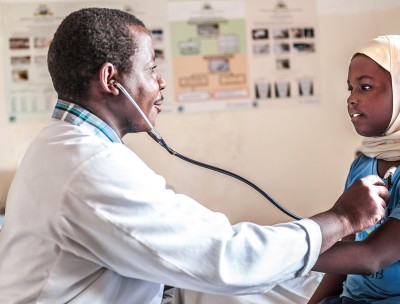OHCHR and the right to social security

The right to social security is recognized in numerous human rights instruments, including the Universal Declaration of Human Rights and the International Covenant on Economic, Social and Cultural Rights and is crucial for guaranteeing a life in dignity. A fundamental human right, social security is a potent tool to combat discrimination and an essential instrument for reducing poverty and promoting social inclusion. It aims to provide income security and support at every stage of life for everyone, with particular attention to the most marginalized.
More about the right to social security and human rights, particularly for older persons, persons with disabilities, and youth
Key elements of the right to social security
The following are essential aspects of the right to social security in all situations:
- Availability: A social security system needs to be in place under domestic law to ensure that benefits are effectively administered and supervised.
- Adequacy: Benefits, whether in cash or in kind, must be sufficient in quantity and duration so that everyone may realize his or her rights to family protection and assistance, a reasonable standard of living and access to health care.
- Affordability: Costs and charges associated with contributions to social security must be economical for all, and must not compromise the realization of other Covenant rights.
- Accessibility: A social security system should cover all persons, especially those belonging to the most disadvantaged and marginalized groups, without discrimination. Benefits should also be physically accessible.
Learn more about the key elements of the right to social security
OHCHR’s work on the right to social security
Social protection is a key area of work for OHCHR. We provide guidance to States on comprehensive social protection systems through our thematic reports to the Human Rights Council, in our engagement in public events and in responding to specific requests by States and civil society.
Together with ILO, UNICEF, UN Women and the UN Research Institute for Social Development, we contribute to a web-based platform on social protection and human rights. We address questions, share best practices and give advice.
In particular, we encourage States to adopt social protection schemes that are responsive to the needs and rights of children, and which promote behavior that advances equality between men and women—such as systems that take account women’s unequal burden of unpaid care work.
Note on the right to social security
PDF: English
51st session of the HRC: OHCHR’s Side event on social protection
WORD: English
Draft comparative study on fiscal policies and social protection
PDF: English
Key documents
General Comment No. 19, Committee on Economic, Social and Cultural Rights
E/C.12/GC/19
The impact of austerity measures on ESCR
E/2013/82
Latest reports and publications
Report of the Secretary-General on the question of the realization in all countries of economic, social and cultural rights (A/HRC/49/28, February 2022)
Report of the United Nations High Commissioner for Human Rights, Summary of the intersessional full-day panel discussion on the right to social security in the changing world of work (A/HRC/49/33, February 2022)
Report of the United Nations High Commissioner for Human Rights on economic, social and cultural rights to the Economic and Social Council (E/2020/63, June 2021)
Report of the Secretary-General on the question of the realization of economic, social and cultural rights in all countries: the impact of the coronavirus disease (COVID-19) on the realization of economic, social and cultural rights (A/HRC/46/43, January 2021)
Report on social protection floors and economic and social rights (2015)
This report looks at social protection floors, and how their adoption by States is important in securing the enjoyment of basic economic, social and cultural rights, reducing poverty and inequality.
Report on austerity measures on economic and social rights (2013)
Austerity measures passed by States in the wake of the global financial crisis of 2008 reduced social sector spending and lowered standards of living for many. To meet human rights obligations, States must work to ensure these measures are necessary, proportionate, non-discriminatory and respectful of minimum core obligations.
Key advocacy messages on austerity measures and the right to social security (2013)
This brochure provides key human rights messages regarding the impact of austerity measures, with a specific focus on the right to social security.

